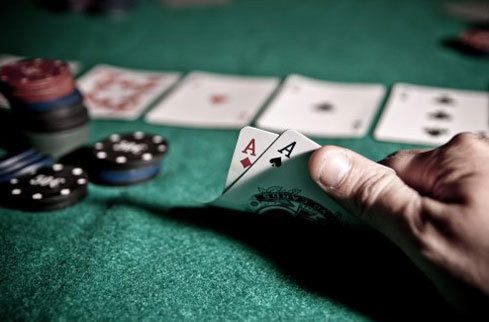During Tet, my family members and I often play cards, lotto, or dice for fun and to win or lose with money.
So, I would like to ask, if we only "kill" with family members, will we be punished?

Many people invite each other to play cards on Tet holiday
Currently, the law prescribes penalties for illegal gambling. Thus, the law does not distinguish between illegal gambling between family members or between unrelated people. In other words, if you gamble illegally, you will be punished, regardless of whether or not there is a close relationship between the players.
Depending on the severity of the violation, illegal gambling may be subject to administrative or criminal penalties.
What is gambling?
There are currently no specific regulations on the concept of gambling, but according to current regulations, gambling is understood as any form of winning or losing in money or in kind.
Illegal gambling can be understood as forms of winning or losing in money or in kind that are not organized by competent state agencies.
For example, if you enter places licensed to organize casino activities, or you enter fairs and festivals that are legally organized, have folk games where players can win prizes, or places that still organize games such as bingo, for example, you will not be prosecuted.
At the level of handling administrative violations, according to the provisions of Decree No. 144/2021/ND-CP dated December 31, 2023, illegal gambling activities include acts of buying lottery numbers, lottery numbers, dice, thirteen, black and red, chess, 6-card Indian soldiers, 13-card thirteen, thirteen, cockfighting, over-under or other forms with the purpose of winning or losing money, property or objects; gambling with illegal machines or electronic games; illegal betting in sports competitions, entertainment or other activities.
In addition to those who directly participate in gambling, those who organize gambling, or intermediaries such as those who receive deposits, pawn, or illegally lend money at casinos, illegal gambling places, and those who assist, conceal, or protect gambling places will also be prosecuted.
Also according to Decree 144, the administrative penalty for gamblers can be fined from 200,000 to 2 million VND. And those who entice or entice others to gamble, use their own home, accommodation, vehicles, or other locations or those they manage to harbor gambling can be fined from 5-10 million VND. In addition, all money and gambling equipment will be confiscated.
If gambling is on a large scale, falling under the circumstances stipulated by the Penal Code, the monetary penalty will be much heavier, and gamblers may even be criminally prosecuted.
Specifically, according to the provisions of Article 321 of the 2015 Penal Code, amended and supplemented in 2017, gambling with money or objects worth VND 50 million or more, or less than VND 50 million, which has been administratively sanctioned (according to the provisions of Decree 144 above), or has not had its criminal record cleared, or is a dangerous recidivist, can be fined VND 20-100 million, or imprisoned for up to 10 years.
The value of money or objects used for gambling is determined according to the guidance of the Supreme People's Court's Council of Judges in Clause 3 and Clause 4, Article 1, Resolution No. 01/2010/NQ-HDTP dated October 22, 2010. The value of "money or objects used for gambling" includes: money or objects used for gambling seized directly at the gambling table; money or objects seized from gamblers that have grounds to determine have been or will be used for gambling; money or objects seized in other places that have sufficient grounds to determine have been or will be used for gambling.
In case many people participate in gambling together, the determination of money and value of gambling objects for each gambler is the total amount of money and value of gambling objects of all gamblers as instructed above.
Thus, it is important to note that gambling money that is confiscated and punished is not only money left on the gambling table, but also money kept on the person, or kept by someone else or kept elsewhere, and objects that are being pawned for gambling, if there is evidence to prove that they will be used for gambling, will also be confiscated and determined to apply penalties corresponding to the total value.
HQ (according to VnExpress)